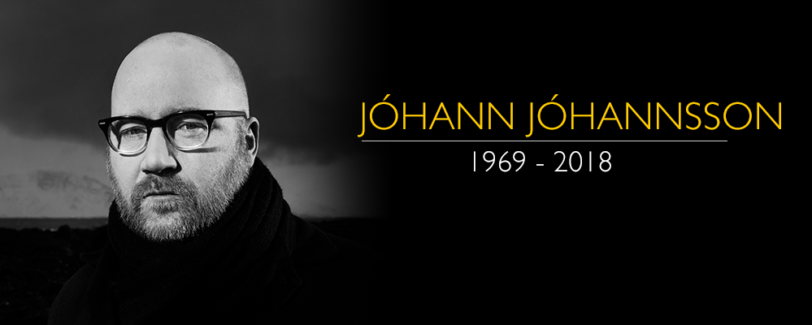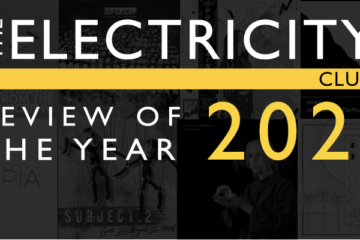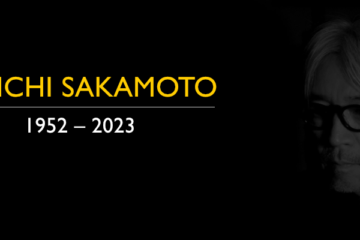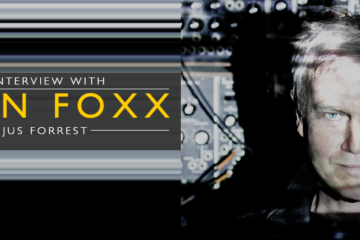The talents of Icelandic musician and composer Jóhann Jóhannsson revealed a unique ability to adapt and change. His familiarity with classical arrangement, as well as with electronic music, was matched by the rapid speed in which he mastered the art of soundtrack composition.
With the sad news that Jóhannsson has recently passed away comes the realisation that the work of this exceptional musician has been silenced forever. The shock of this revelation is also given greater impact by the young age at which he passed.
Jóhann Jóhannsson was originally born in Reykjavik and developed an interest in music from a young age, studying the trombone and piano academically. He started his first band in his teenage years and later formed part of various Icelandic rock outfits. Inspired by bands such as Suicide and The Jesus & Mary Chain, Jóhannsson was intrigued by the idea of dense, layered sound compositions. At the same time, he developed an interest in electronic music with a particular interest in the likes of Kraftwerk, Neu! And Tangerine Dream.
In 1999, Jóhannsson co-founded Kitchen Motors, a combination of think tank and music label that encouraged collaborations across many musical genres, including jazz, punk, classical and electronic music. This process provided the foundations for his approach to music composition in which he would choose different music approaches as an expansion of his palette.
In the case of Jóhannsson’s first album Englabörn, he employed the use of string instruments processed through digital filters. His leanings towards classical music instrumentation being less of a desire to work within that genre and more of the use of its sound to achieve his own vision.
Signing to the 4AD label, Jóhannsson later released IBM 1401, A User’s Manual. This 2006 album took inspiration from Jóhannsson’s father, an IBM engineer and one of Iceland’s first computer programmers. Jóhannsson Senior used this hardware to compose melodies (something the computer wasn’t designed to do), the recordings of which are featured in the movements that the album is built around. IBM 1401, A User’s Manual was a striking album that was difficult to pigeonhole, but its haunting melodies and stirring string segments helped expose Jóhann Jóhannsson to a broader audience.
His 2008 album Fordlandia was conceived as the second instalment in a proposed trilogy (alongside IBM 1401, A User’s Manual) that explored themes of dealing with technology and industrial archaeology. “One of the two main threads running through it is this idea of failed utopia, as represented by the ‘Fordlandia’ title” commented Jóhannsson at the time, “the story of the rubber plantation Henry Ford established in the Amazon in 1920s, and his dreams of creating an idealized American town in the middle of the jungle complete with white picket fences, hamburgers and alcohol prohibition”.
Jóhannsson later collaborated with filmmaker Bill Morrison for a film soundtrack titled The Miners’ Hymns. Recorded in Durham Cathedral, this composition featured a brass band, pipe organ and electronic elements designed to accompany a wordless film that explored the mining communities of the north east of England.
The idea of scoring films was something that the Icelandic composer later explored with director Denis Villeneuve on 2013’s Prisoners. It was a collaboration that saw the pair work on later films, such as Villeneuve’s drama about the Mexican cartels, Sicario. Through ominous compositions such as ‘The Beast’, Jóhannsson demonstrated a talent for strong, evocative compositions that could induce uncomfortable emotional responses.
Jóhannsson teamed up with Villeneuve again for 2016’s tale of extraterrestrial intrigue Arrival. Here, the composer expanded on the brooding tones that he’d established in Sicario to craft monolithic cathedrals of sound that had an almost physical presence. As a result, Arrival won the World Soundtrack Awards for Best Film Composer Of The Year.
A further collaboration with Villeneuve for Blade Runner 2049 faltered however when the director favoured a score that tacked closer to the iconic work that Vangelis had composed for the 1982 original. As a result, Jóhannsson left the project to be replaced by Hans Zimmer and Benjamin Wallfisch.
But the composer’s work still managed to be noticed, winning the Golden Globe Award for Best Original Score for his score on the 2014 Stephen Hawking biopic The Theory Of Everything.
Outside of his soundtrack work however, Jóhannsson continued to compose and produce his own solo outings. Signing to the Deutsche Grammophon label he released Orphée in 2016. Taking its inspiration from Ovid’s tale on the myth of Orpheus, Jóhannsson also weaved in unusual elements, including recordings of number stations. These odd additions, alongside the strings-heavy compositions for the tracks on the album, lent Orphée a melancholic and reflective atmosphere.
More recently, Jóhannsson’s scoring work featured in The Mercy, a biographical film directed by David Marsh about Donald Crowhurst’s disastrous attempt to complete the Golden Globe Race in 1968. He also scored the as-yet to be released biblical drama Mary Magdalene.
The legacy that Jóhann Jóhannsson leaves behind is an impressive one that encompasses a broad number of accomplished studio albums, as well as a catalogue of stunning film soundtrack work.
http://www.johannjohannsson.com
Photo by Jónatan Grétarsson.










